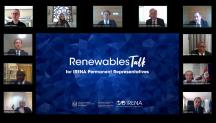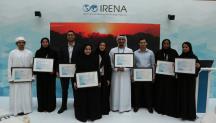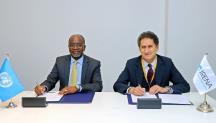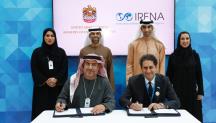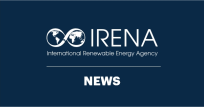
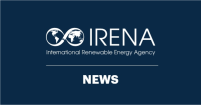
Ministerial Roundtable on the Medium-term Strategy for IRENA
Newsletter
Country feedback, advice and insights were sought today at a Ministerial Roundtable held today during IRENA’s Second Assembly into how the Agency can best refine its proposed Medium-term Strategic Framework for 2012-2015. High-level representatives, including Ministers of Energy, from about 60 countries attended the Roundtable and were asked to consider five key questions:
Does the current draft of the Medium-term Strategy address the key issues for IRENA in the medium to long term and can it be further refined and targeted?
- How can IRENA position and structure itself to become a global voice for renewable energy and technologies?
- How can IRENA position itself to become a renewable energy and technology advisory resource for developing countries?
- How can IRENA increase the breadth and depth of its regional programmes?
- How can IRENA establish itself to help developing countries make a business case for renewable energy?
The session, moderated by Mr Farooq Abdullah, Union Minister for New and Renewable Energy, India, began with expert views on the likely impact of IRENA’s Medium-Term Strategy from Mr. Mohamed El-Ashry, Chairman of REN21’s Steering Committee; Mr. Jeremy Oppenheim, Director McKinsey & Company and Mr. Klaus Toepfer, Executive Director, Institute of Advanced Sustainability Studies.
Many points were raised in the lively discussion from the floor including the questions of technology transfer; the founding of technology excellence centres; strategy and budget; risk management: the need to act quickly on climate change; and the necessity of having a long-term vision to complement the Medium Term Strategy.
Several speakers spoke about partnerships, stressing the importance of partnering with the private sector and the need to engage more closely with Spanish and French-speaking organisations to advance IRENA’s agenda in Africa and Latin America.
The importance of ensuring global awareness of the dangers of climate change and the benefits of renewable energy was also raised, although it was pointed that while IRENA was a catalyst of visions, it was the duty of countries to advocate and convert their populations to the benefits of renewable energy and to dispel common misconceptions – such as its costliness.
The summary report of the ministerial roundtable is available here
